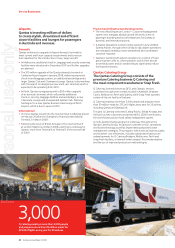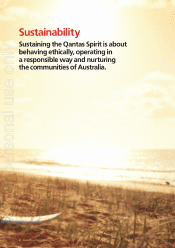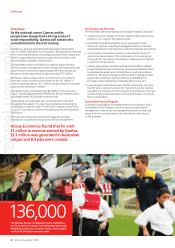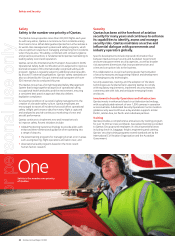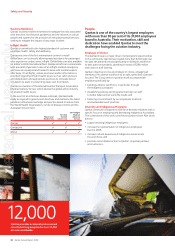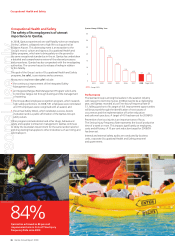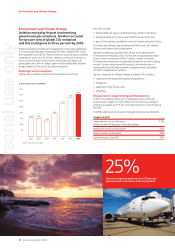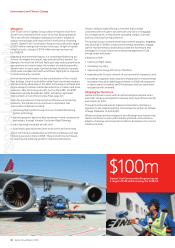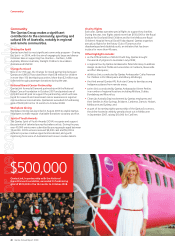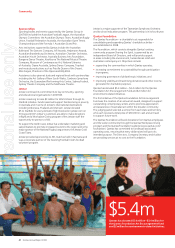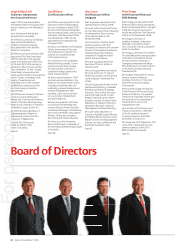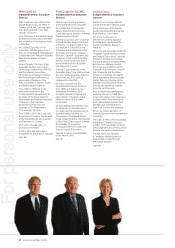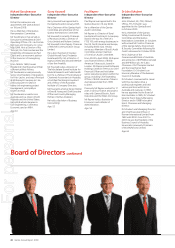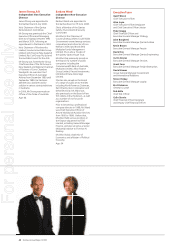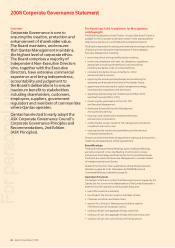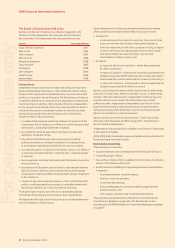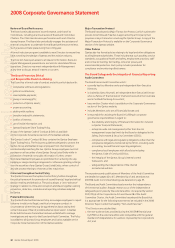Qantas 2008 Annual Report Download - page 41
Download and view the complete annual report
Please find page 41 of the 2008 Qantas annual report below. You can navigate through the pages in the report by either clicking on the pages listed below, or by using the keyword search tool below to find specific information within the annual report.
39 Qantas Annual Report 2008
90,00090,000
In conjunction with CO2 Australia, Qantas planted
90,000 trees as part of Fly Carbon Neutral Day.
Environment and Climate Change
• the introduction of the Qantas Award for Excellence in
Sustainable Tourism in 2008, with an accompanying national
education campaign to encourage tourism businesses to
implement environmentally sustainable business practices;
• the creation of an Environmental Sustainability Fund through
the Qantas Foundation, with a mandate to support charities that
set out to improve the environment; and
• continued support of Qantas’ wildlife protection and assistance
programs, such as helping to save the Tasmanian Devil through
research scholarships at the University of Tasmania and raising
funds for causes like the ‘Ecocean’ Whale Shark conservation
program.
Offsetting
In September 2007, Qantas launched a Greenhouse FriendlyTM
accredited carbon offset program that allows Qantas and Jetstar
passengers to calculate and offset their share of flight emissions
when making a booking. All contributions go towards Australian
based Greenhouse FriendlyTM accredited abatement programs such
as tree planting and energy efficiency projects, which either remove
greenhouse gases from the atmosphere or avoid their release.
Qantas ensures that all contributions from customers go to their
intended purpose.
To launch the program, Qantas pledged to:
• offset carbon emissions of every international and domestic
Qantas Group flight on 19 September 2007, Fly Carbon Neutral
Day, by planting 90,000 trees in conjunction with CO2 Australia;
and
• offset emissions for all employees travelling for business purposes
and its ground transport vehicles.
By the end of the first year of the program, Jetstar and Qantas
passengers had elected to offset 66,235 tonnes of greenhouse
gases, which the Qantas Group has now purchased. Qantas has
also paid for an additional 40,000 tonnes of offsets for Fly Carbon
Neutral Day.
Jetstar
Jetstar’s carbon offset program has become one of the most
successful programs in the Australian airline industry. Jetstar has
collected almost $600,000 to purchase abatement through progams
approved by the Department of Climate Change. Approximately
12 per cent of all passengers booking at jetstar.com in Australia
currently choose to offset their share of flight emissions.
Performance
For the two years to 2008, Qantas achieved efficency savings
of 1.3 million tonnes of cabon dioxide and is in a strong position
to reach its challenging 2011 target.
In 2008, there was a small decrease in fuel efficiency compared to
2007. This was caused by a decline in freight volumes and the
introduction of Premium Economy on the B747-400 fleet,
leading to a reduction in seats per aircraft.
110
105
100
95
90
85
80
106.7
2002
104.4
2003
99.1
2004
99.1
2005
97.1
2006
94.4
2007
95.0
2008
89.8
Target 2011
CO2 Emissions (Kgs per 100 RTKs)
Qantas Airline’s Aviation CO2 Efficiency (Kgs per 100 RTKs)
For personal use only


